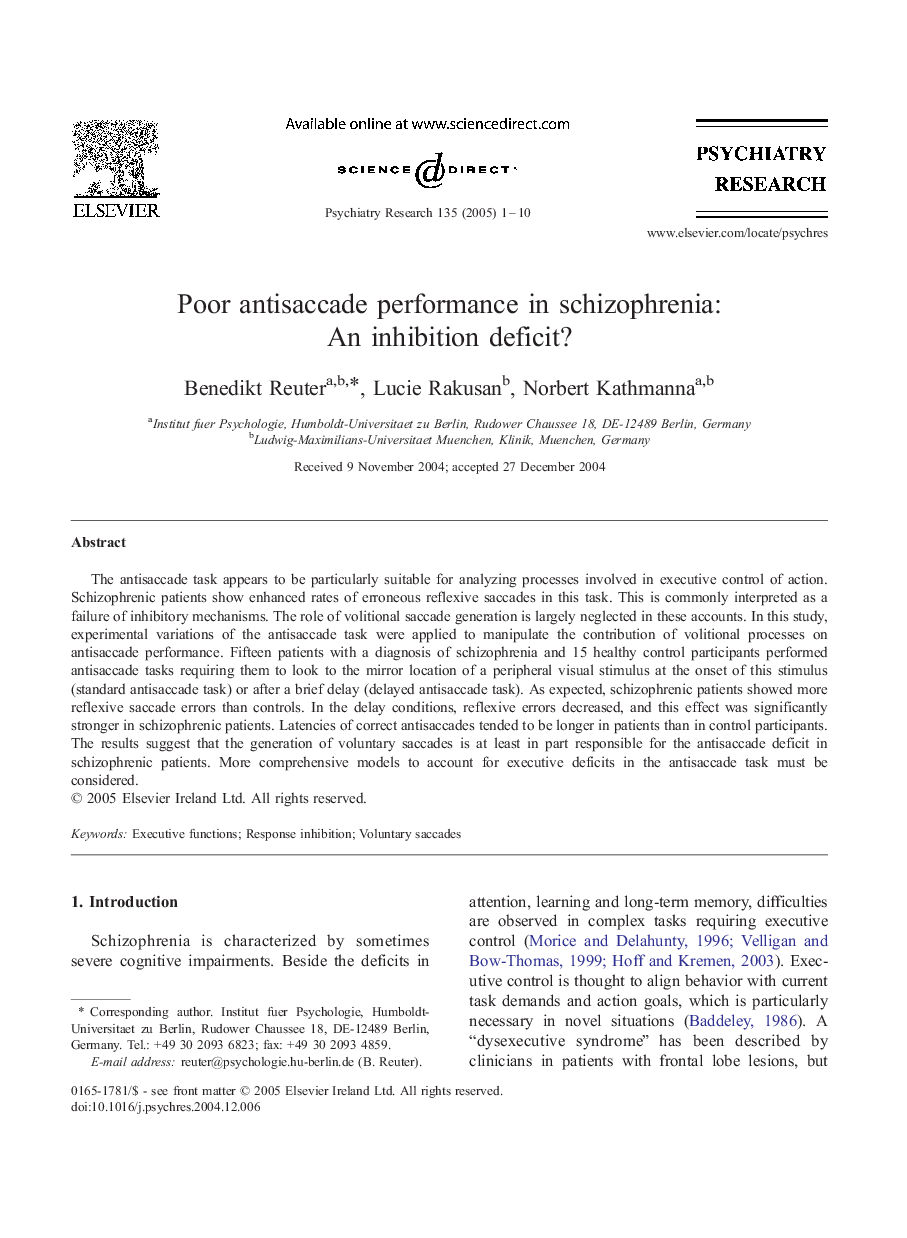| Article ID | Journal | Published Year | Pages | File Type |
|---|---|---|---|---|
| 10305158 | Psychiatry Research | 2005 | 10 Pages |
Abstract
The antisaccade task appears to be particularly suitable for analyzing processes involved in executive control of action. Schizophrenic patients show enhanced rates of erroneous reflexive saccades in this task. This is commonly interpreted as a failure of inhibitory mechanisms. The role of volitional saccade generation is largely neglected in these accounts. In this study, experimental variations of the antisaccade task were applied to manipulate the contribution of volitional processes on antisaccade performance. Fifteen patients with a diagnosis of schizophrenia and 15 healthy control participants performed antisaccade tasks requiring them to look to the mirror location of a peripheral visual stimulus at the onset of this stimulus (standard antisaccade task) or after a brief delay (delayed antisaccade task). As expected, schizophrenic patients showed more reflexive saccade errors than controls. In the delay conditions, reflexive errors decreased, and this effect was significantly stronger in schizophrenic patients. Latencies of correct antisaccades tended to be longer in patients than in control participants. The results suggest that the generation of voluntary saccades is at least in part responsible for the antisaccade deficit in schizophrenic patients. More comprehensive models to account for executive deficits in the antisaccade task must be considered.
Related Topics
Life Sciences
Neuroscience
Biological Psychiatry
Authors
Benedikt Reuter, Lucie Rakusan, Norbert Kathmanna,
